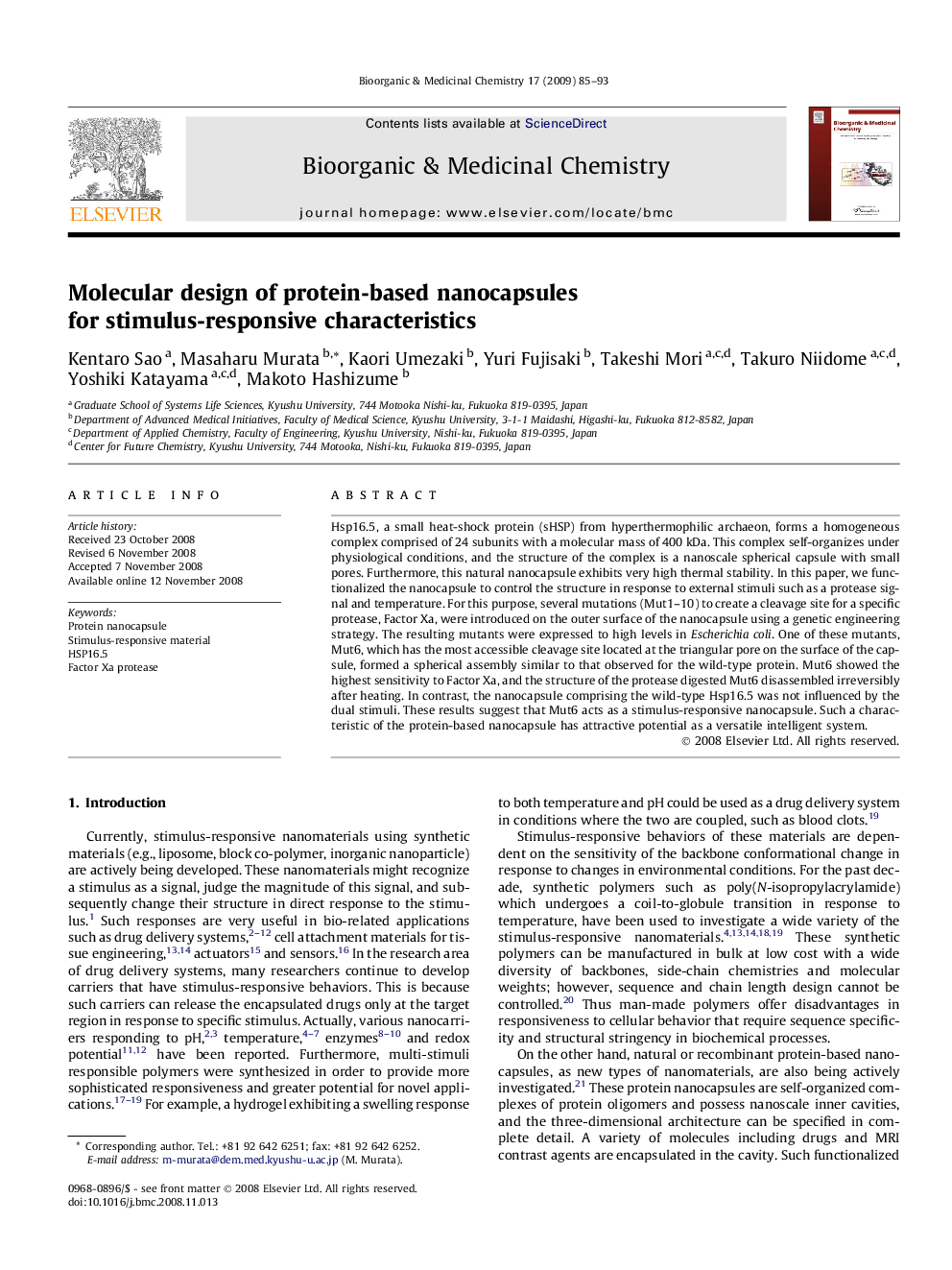| کد مقاله | کد نشریه | سال انتشار | مقاله انگلیسی | نسخه تمام متن |
|---|---|---|---|---|
| 1356560 | 981130 | 2009 | 9 صفحه PDF | دانلود رایگان |

Hsp16.5, a small heat-shock protein (sHSP) from hyperthermophilic archaeon, forms a homogeneous complex comprised of 24 subunits with a molecular mass of 400 kDa. This complex self-organizes under physiological conditions, and the structure of the complex is a nanoscale spherical capsule with small pores. Furthermore, this natural nanocapsule exhibits very high thermal stability. In this paper, we functionalized the nanocapsule to control the structure in response to external stimuli such as a protease signal and temperature. For this purpose, several mutations (Mut1–10) to create a cleavage site for a specific protease, Factor Xa, were introduced on the outer surface of the nanocapsule using a genetic engineering strategy. The resulting mutants were expressed to high levels in Escherichia coli. One of these mutants, Mut6, which has the most accessible cleavage site located at the triangular pore on the surface of the capsule, formed a spherical assembly similar to that observed for the wild-type protein. Mut6 showed the highest sensitivity to Factor Xa, and the structure of the protease digested Mut6 disassembled irreversibly after heating. In contrast, the nanocapsule comprising the wild-type Hsp16.5 was not influenced by the dual stimuli. These results suggest that Mut6 acts as a stimulus-responsive nanocapsule. Such a characteristic of the protein-based nanocapsule has attractive potential as a versatile intelligent system.
Schematic illustration of a protein nanocapsule disrupted by protease digestion and heating.Figure optionsDownload as PowerPoint slide
Journal: Bioorganic & Medicinal Chemistry - Volume 17, Issue 1, 1 January 2009, Pages 85–93